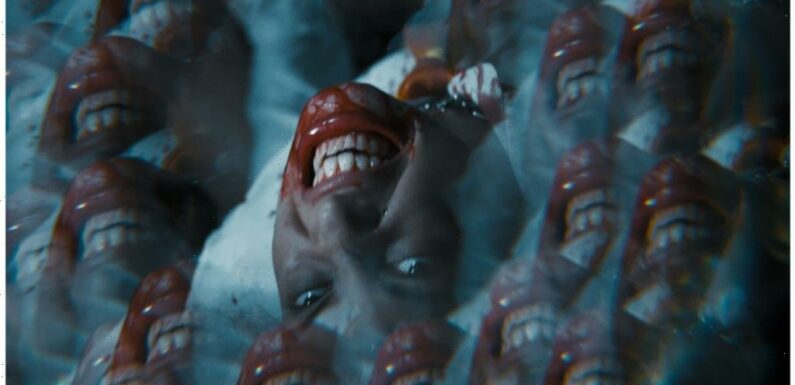
“Perpetrator,” director Jennifer Reeder’s provocative new horror noir that she describes as a “celebration of the girl gone wild,” world premieres Feb. 17 in the Panorama section at the Berlin Film Festival.
Written and directed by Reeder, “Perpetrator” follows an impulsive teenage girl who must unlock a mysterious power to survive when the young women in her town continue to go missing. The film stars Kiah McKirnan (“Mare of Easttown”), Christopher Lowell (“My Best Friend’s Exorcism”), Melanie Liburd (“The Idol”), Ireon Roach (“Candyman”), and Alicia Silverstone (“Clueless”). It is produced by Gregory Chambet for WTFilms and Derek Bishé for Divide/Conquer.
Reeder was last in Berlin with the 2019 murder mystery “Knives and Skin,” which IFC Midnight released theatrically. Acquired ahead of its world premiere by Shudder, “Perpetrator” is the director’s third collaboration with AMC Networks’ streaming service for horror, thrillers and content about the supernatural. Previous works include “Night’s End,” featuring Michael Shannon, and the critically acclaimed anthology entry “V/H/S/94.”
Reeder spoke to Variety this week in Berlin about our society’s obsession with youth and beauty, the long lineage of genre filmmaking, and why America is so scared of teenage girls.
You’ve described this film as a celebration of the “girl gone wild.” Can you unpack that a bit?
So many of the films I’ve made featured sometimes one, sometimes many teenage girls. I was getting lots of questions about that experience, when people would ask how it is to work with so many teenage girls on set. And my answer would be like, “It’s great. It’s why I keep making films about them.” But what was in their question was actually the assumption that it was awful — that a whole pack of teenage girls might as well be a pack of wolves. We are a culture that’s really into youth and beauty among young women, and we are also afraid of them, or we do a lot to disrupt their evolution. The language around the teenage girl who has agency over her sexuality is that she’s wild and out of control. That’s not meant to amplify her agency. It’s really meant to diminish it.
How did that lead you to “Perpetrator”?
After I did “Knives and Skin,” which premiered here in 2019, which was a more genre-adjacent film, I thought, I’m going to do something that feels like a real proper genre film. And that idea of a wild and out-of-control girl felt like a great, nuanced sort of shape-shifter story. That’s where it started. I thought I really want to take this term, this thought about a young woman that is meant to diminish her and that becomes her superpower.
You’ve talked about our obsession with young bodies, and how society is so eager to “consume and destroy them.” What do you mean by that?
With social media, it seems like anybody can go from zero to influencer, for better or for worse, and so the pressure to be camera-ready for the average teenage girl is enormous. The area where you can mess that up is very slim, and there are people who don’t know you at all in real life, who feel compelled to fill up the thread with horrible, disparaging degrading comments. How can that not damage a young person who feels pressure both from the outside, and maybe even puts pressure on herself, to perform in front of the camera for social media? That sense of consumption of youth and beauty among young women, and yet also a fear that slips into real disdain for them. I don’t know that “Perpetrator” will be some kind of miraculous course correct. But I think it can be a film that’s both entertaining and scary in parts, and that is also a conversation starter.
What is it about genre filmmaking that attracts you?
For the longest time I would make these movies, not unlike “Knives and Skin,” that were really genre adjacent. There would be a missing girl, or there would be someone who had a mysterious wound from some accident. There was this kind of darkness looming under the story that might be about something else. And I wanted to slowly, on my own terms, lean into that darkness, those kind of mysteries. I’ve always used a lot of supernatural or surreal elements, but I wanted to combine the two and slowly find my own voice in genre. “Perpetrator” is probably the most genre of all of them, but it took the films that came before it, which had much more subtle genre elements, to get where I am.
How do you fit into that larger conversation?
I don’t want to replicate what’s out there. It’s a bold ambition, but I want to make some iconic images, iconic moves in that space. I absolutely think that right now, not just looking back to [Karyn Kusama’s horror-comedy] “Jennifer’s Body” or recent Jordan Peele, that genre has become a super fruitful place to deliver to an audience something super entertaining, but that cinephiles or film theorists or academics at the end of the day have something to chew on, too.
Read More About:
Source: Read Full Article